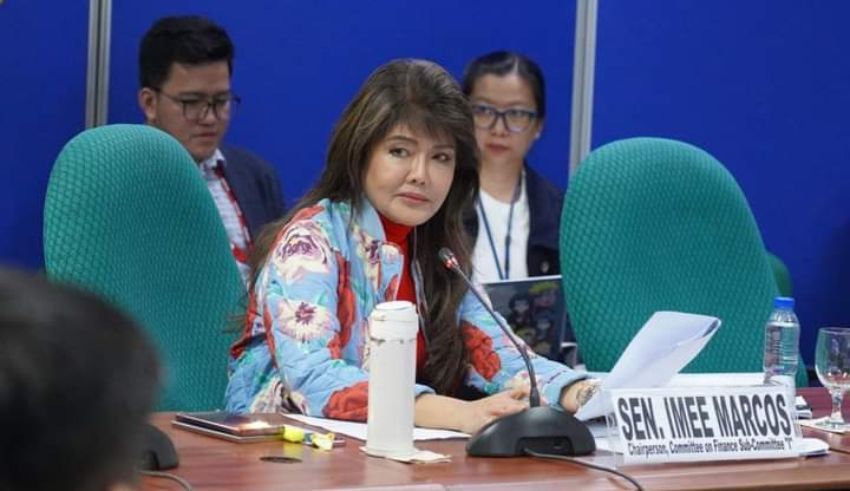
Reacting to the widespread flooding brought on by Severe Tropical Storm “Kristine” in the Bicol region, Senator Imee Marcos has asked for an explanation for the ₱132 billion given to flood control in the region since 2018. The senator noted that even with significant annual funding, the Bicol area is still vulnerable since communities and families deal with continuous flooding. Marcos argued the public “deserves transparency” on the use of the cash and stressed the relevant agencies should take consideration of the multi-year investment in flood control infrastructure.
Billions in allocations with restless outcomes
Declaring the situation “unacceptable,” Marcos expressed dissatisfaction at the difference between the allocated funds and the results seen on the ground. Bicol alone got ₱31.94 billion for flood control initiatives this year thanks to the General Appropriations Act. This most recent funding is a part of a more general budget of around ₱ 133 billion allocated for past six years’ flood control projects. Despite significant spending, Severe Tropical Storm Kristine has exposed serious infrastructure problems; the senator questions why families are still exposed to these preventable diseases.
Underlining her concerns on the success of the projects, Marcos said, “It’s unacceptable that ₱132 billion has been designated for Bicol flood control projects yet communities remain inundated and families are suffering.” As heavy rain keeps flooding the area, she highlighted that government agencies should provide a full justification of how money was used and what development, if any, has been made to tackle these climate concerns.
Marcos is pushing the Department of Public Works and Highways (DPWH) and other relevant departments to generate a comprehensive study of the state of the flood prevention programs backed by the ₱132 billion investment. She questioned the administration and quality of these initiatives, saying that more accessible information is needed so the public may understand whether more exact, strategic investments are needed or if the money has been used effectively.
In her comments, she emphasized especially the need of Filipinos—especially those living in Bicol—for observable results from the government’s commitment. Stressing the importance of the problem, she stated, “Our people deserve answers, and our communities deserve infrastructure that actually works”. Marcos noted that the heavy rain brought on by recent storms clearly shows that present flood control measures are insufficient to protect Bicol’s population, hence more dependable and robust solutions are definitely needed.
Keep Reading
Supporting an All-Inclusive Funding Comprehensive Review for Flood Control
While the Senate debates the proposed ₱6.351 trillion 2025 national budget set for November, Marcos has voiced her support for a reconsideration of flood management allocation. She believes that rather than depending simply on out-of-date techniques failing to address rising climate issues, creative and practical engineering solutions should be given top priority in the budget. “We need realistic, well-engineered solutions that really address climate-related threats—not antiquated responses that continue to put lives, homes, and livelihoods at risk—for the 2025 national budget,” she said.
Demand for a comprehensive evaluation has grown as more senators voice concerns regarding the efficiency of the nation’s flood management budget. Marcos stressed that, particularly in flood-prone regions like Bicol, where climate change has compounded the challenges of flood control, the growing impact of extreme weather requires a budget that stresses innovation, efficiency, and dependability.
Building Resilience
As the Philippines negotiates increasing climate-related dangers, Senator Marcos emphasized the need of ensuring that government expenditures in flood control infrastructure are well-targeted and able of withstanding the stresses of strong weather. Bicol, one of the most climate-vulnerable regions in the country, has been repeatedly hit by strong storms, which underlines the great need of adequate flood control infrastructure to save livelihoods and life.
Senator Marcos concluded her comments with a promise to keep government institutions responsible, saying that future budgets must give tangible impact for those most affected. Under her demand for responsibility, Marcos became part of a growing trend of legislators advocating more proactive, results-oriented budgeting that gives long-term resilience first priority over short repairs.




